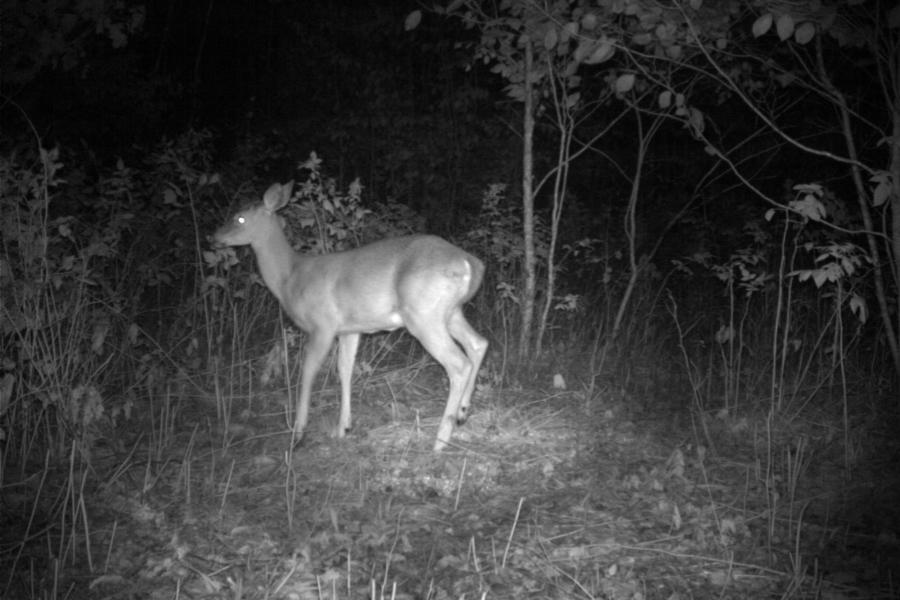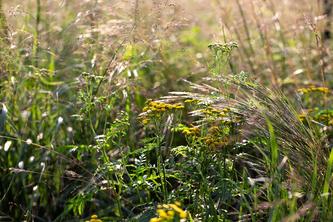
MINNEAPOLIS/ST. PAUL (01/22/2024) — Whether or not wolves might affect hunting with bait has been a long-standing question — a recreational tradition that is controversial inside and outside the hunting community. While baiting increases the opportunity for a successful shot and more immediate kill, it creates a predictable food source that concentrates deer and deer scent, attracting wolves.
New research from the University of Minnesota, published in Ecology and Evolution, suggests that wolf scent at bait sites is actually less influential on deer activity than the overall habitat.
The researchers designed an experiment in two areas of Michigan, the Upper Peninsula (UP) and the northern Lower Peninsula (LP). These sites were selected because the UP has an established wolf population and deer that are experienced with predators, and the LP has no wolf population and deer that are comparatively naive to wolf predation.
The study compared control deer bait piles with those treated with wolf urine, and used remote cameras to record group size, vigilance, number of visits and activity patterns of deer.
They found:
- Deer were less active during the evenings at wolf urine-treated sites in the UP. These results indicate that wolf scent may impact daily activity patterns of experienced deer, but otherwise does not affect deer at hunter bait piles.
- When the researchers added vegetation cover to the equation, they saw a strong relationship in the UP between vegetation cover and deer vigilance, regardless of treatment type. As vegetation cover increased, deer became more vigilant, presumably because they could not see or easily detect an approaching predator and needed to look up more often to be vigilant.
- Researchers did not see this same pattern in the LP where wolves are absent, presumably because deer have not had to worry about being vigilant for wolves.
“Though we expected to see more vigilance, larger group size and fewer visits by deer in response to wolf urine-treated sites in the UP, we did not see any biologically significant difference between the treatments in the LP or the UP,” said lead author Ellen Candler, a postdoctoral researcher in the College of Food, Agricultural and Natural Resource Sciences.
The results show that predator cues can affect deer vigilance at bait-sites with denser vegetation, seemingly making deer more cautious and difficult to hunt and suggest that selecting more open hunting areas in locations where wolves occur may result in easier-to-target deer.
While this research focused on deer behavior at a predictable concentrated food source, future research could investigate the same behavioral reactions in states, like Minnesota, where baiting is not allowed.
This research was funded by the National Science Foundation.
About the College of Food, Agricultural and Natural Resource Sciences
The University of Minnesota’s College of Food, Agricultural and Natural Resource Sciences (CFANS) strives to inspire minds, nourish people, and sustainably enhance the natural environment. CFANS has a legacy of innovation, bringing discoveries to life through science and educating the next generation of leaders. Every day, students, faculty, and researchers use science to address the grand challenges of the world today and in the future. CFANS offers an unparalleled expanse of experiential learning opportunities for students and the community, with 12 academic departments, 10 research and outreach centers across the state, the Minnesota Landscape Arboretum, the Bell Museum of Natural History, and dozens of interdisciplinary centers. Learn more at cfans.umn.edu.
- Categories:
- Agriculture and Environment





